Are diesel generators better than gas? Power generation or backup supply of your operations during a power failure often comes down mainly to choosing between the most common ones-diesel and natural-gas generators. Both have advantages and drawbacks that affect the decision one takes based on one’s needs, priorities, and circumstances. In this regard, we will look into the key differences between these types of generators, analyze their pros and cons, and help you decide which options serve your application better. You need either reliability, cost efficiency, or sustainability. This guide will assist you in every manner.
Understanding Diesel and Natural Gas Generators
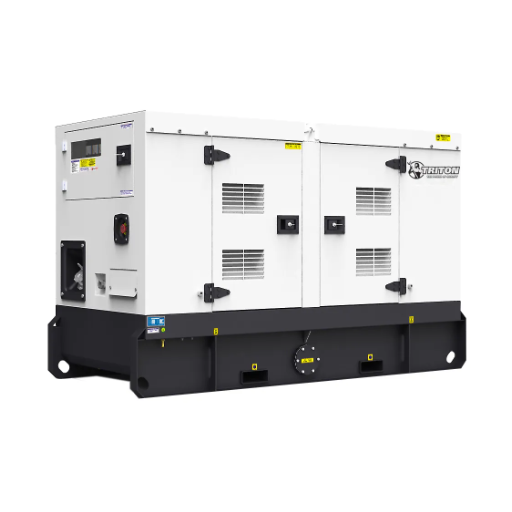
- Diesel Generators
With reliability and durability being their trademarks, diesel generators run on a diesel-fueled internal combustion engine for power generation, making them suited for high-load applications. The burning of diesel fuel is more energy-dense, giving steady performance during long operations. The generators are preferred in the industrial or emergency environment due to their rugged nature and handling of heavy usage. Also, due to their initial price margin, they are generally higher and thus require regular upkeep for peak performance.
- Natural Gas Generators
Natural gas generators depend upon natural gas as fuel, which might be readily available through existing pipelines. They are comparatively less polluting, making them environmentally friendly than diesel generators during operation. Compared to diesel, the operational cost is somewhat lower when considering natural gas prices. These kinds of generators, being simple and less polluting, may in fact underperform in remote areas where natural gas supplies are limited and may certainly not be so suitable in a spot demanding high loads as compared to the diesel generator.
What is a Diesel Generator?
Such a diesel generator is an energy source with a diesel engine paired with an alternator for electricity production. The fast-moving diesel engine is powered by diesel fuel, which is known to be one of the best energy sources and the least explosive type of fuel. Back-up power provided by diesel generators is used widely in construction sites, hospitals, and telecommunication sites, or sometimes as the primary electricity source in places with no grid connection. They are prized for their good reliability and durability and are best suited for high-demand applications. However, they emit many pollutants compared to their natural gas counterparts and require constant maintenance to keep running in good condition.
What is a Natural Gas Generator?
Natural gas generator preferentially refers to an electrical power generating unit in which natural gas is employed for fuel. These generators generate electricity by burning gasoline to drive an internal combustion engine that, in turn, powers an alternator to generate electrical energy. Since natural gas burns cleanly, fewer emissions of pollutants like sulfur oxides or particulates are released; thus, the natural gas generators are more environmentally friendly.
Natural gas generators are widely used in residential, commercial, and industrial applications, from backup generation to continuous energy production. This is mainly because of cost-efficiency, reduced environmental impact, and noise reduction. Also, thanks to innovations in generator technology, natural gas generators have become the best sustainable option compared to the traditional fossil fuel generators in both on-grid and off-grid applications.
Key Differences Between Diesel and Natural Gas Generators
Regarding maintenance expenses, natural gas generators are cheaper than diesel generators.
|
Parameter |
Diesel |
Natural Gas |
|---|---|---|
|
Fuel Cost |
Higher |
Lower |
|
Efficiency |
More efficient |
Less efficient |
|
Lifespan |
Longer |
Shorter |
|
Emissions |
Higher |
Cleaner |
|
Safety |
Safer fuel |
Explosive risk |
|
Size |
Compact |
Larger |
|
Maintenance |
Lower |
Higher |
Performance Comparison
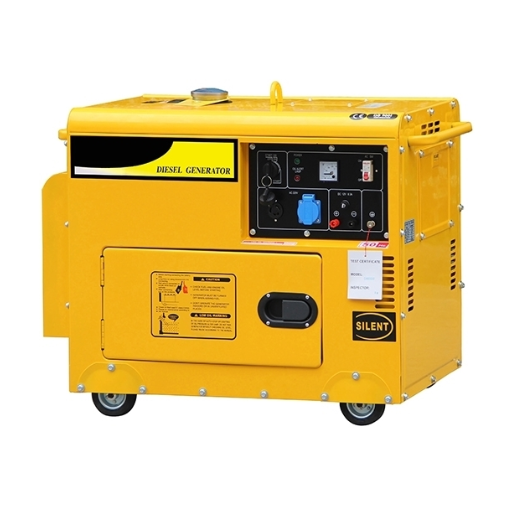
Natural gas generators produce less noise, with fewer emissions and fuel-cost savings, making them an environmentally friendly option. On the other hand, diesel generators are generally more rugged, providing greater power output and performing significantly under full load, thus being an excellent fit for the stringent application. Natural gas generators require a continuous fuel supply via pipeline, but diesel generators can store the fuel, making it highly important in remote locations or emergencies. The exact need dictates the choice between the two: power needs, environmental considerations, or fuel availability.
Fuel Efficiency of Diesel Generators
Known primarily for superior fuel efficiency when juxtaposed with any other type of generator, diesel generators are efficient because of two main factors: the greater density of energy present in diesel fuel and the generator’s conversion of this energy into valuable electricity. The advent of newer generation technologies that use turbocharging and electronic fuel injection systems has paved the way for these engines to run more efficiently while burning less diesel.
Typically, a diesel generator burns about 0.4 to 0.6 liters of fuel for every kWh it generates, making it a cost-effective investment for any long-term power generation project. Equally significant is its steadfast efficiency retention when working under different load conditions, further cementing its usefulness in industrial and emergency setups.
Fuel Efficiency of Natural Gas Generators
The natural gas generators find an alternative to diesel with their clean-burning properties and relative efficiency. On average, a natural gas generator uses 7 to 9 cubic meters per hour for every 100 kWh generated, the rate varying with the size of the generators and load conditions. With improving technology, generations have made fuel consumption efficient while reducing greenhouse gases. The plentiful supply of natural gas and relatively stable price make it an attractive choice for use as a fuel source for residential or commercial power generation.
Power Output and Reliability
Focus on power output and reliability with a natural gas generator. A well-engineered generator assures a consistent and dependable power supply under load fluctuations. The advancement in engine designs and intelligent monitoring systems has improved the reliability factor of these generators and kept their downtime to an absolute minimum. It has been reported lately that with state-of-the-art natural gas generators, operational reliability of 99 percent could be maintained, thus making them an absolute choice for critical establishments like hospitals, data centers, and industrial plants. So, power-output and reliability-wise, natural gas generators are the best option for both regular and emergency power.
Durability and Maintenance Requirements
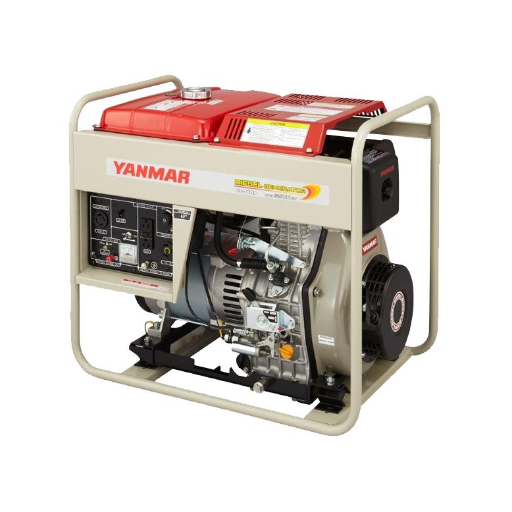
The durability of natural gas generators is often affirmed, for they are usually designed to operate for an extended period, especially with varying working conditions. Keeping these generators performing smoothly requires some upkeep, such as refilling oil, changing filters, and looking for signs of wear. Generally speaking, natural gas generators demand less maintenance than most other types, as their fuel is cleaner, causing less residue buildup. Following the manufacturer’s maintenance schedule and using good quality parts when required can significantly increase their life span.
Maintenance Needs of Diesel Generators
Diesel generators require regular maintenance to ensure efficient and effective operation. Proper maintenance assures reliable operation and extends the generator’s service life. Some important maintenance measures include checking for and changing engine oil and filters periodically (usually every 250-300 hours of operation, depending on the recommendations of manufacturers). Fuel filters must be checked for clogging and replaced at approximately 500 hours.
The operational efficiency and cleanliness of the cooling system must never be compromised, as any failure in this regard will lead to overheating and possible damage to the engine. The coolant must also be checked regularly for its levels and quality with a replacement interval of two to three years or as specified in the manual, whichever comes first. Likewise, the battery should not be overlooked; regular inspection of battery connections and terminals prevents failures in starting. Regarding battery health, testing is recommended after 1,000 hours or every year.
Load bank testing is equally essential and renders the diesel generator free from wet stacking, a buildup of unburned fuel or carbon in the exhaust. Load bank testing conducted once every six months helps improve efficiency and prevent damage. General cleanliness around the generator and its accessories is another requirement for preventing environmental elements such as dust and moisture from causing undue wear.
If one is serious enough to meticulously adhere to these guidelines and maintenance requirements specified by a manufacturer, diesel generators can run for tens of thousands of operational hours while showing only minimal performance issues. For example, with proper maintenance, the life expectancy for a modern diesel generator is generally 20,000 to 30,000 hours.
Maintenance Needs of Natural Gas Generators
It is essential to maintain natural gas generators so they are efficient, reliable, and last a more extended operational period. Natural gas, a cleaner-burning gas, produces fewer carbon deposits, making the engines less abrasive to natural gas generators; hence, they usually need less maintenance than diesel generators. Nonetheless, regular depot inspections and maintenance should be conducted to prevent failures.
Air and fuel filters require attention as part of maintenance needs, since they can clog over time, affecting the efficiency of the engine. It is essential to replace these filters according to the manufacturer’s instructions, usually after 500 to 1,000 hours of operation. Checking and replacing spark plugs should also be part of routine maintenance, as burned-out spark plugs can affect ignition, performance, or cause engine misfires.
Another essential maintenance task is changing the oil in natural gas generators. Depending on the generator’s age and use, an oil change is recommended every 500 to 1,500 hours. Oil analysis has advantages, including helping to identify problems like contamination or excessive wear before they become too serious.
If maintained well, statistics acknowledge that modern natural gas generators can have an impressive lifespan of 20,000 to 50,000 full hours. To fully realize that potential, a technician needs to check the generator control panel, cooling system, and exhaust lines at regular intervals to achieve optimum output and safety compliance.
A maintenance schedule must be regularly planned for the preventive maintenance of natural gas generators, with technical reports duly maintained for all inspections, repairs, and part replacements. Minimizing downtime and increasing reliability can be achieved if one follows the manufacturer’s instructions and trusts the hands of certified service technicians.
Lifespan and Reliability of Both Types
Diesel and gas generators’ lifespans and reliability vary depending on the treatments offered. With maintenance, diesel generator engines usually run for about 20,000 to 30,000 hours; thus, they have a reputation for extreme applications. When installing proper maintenance, natural gas generators can generally run for about 10,000 to 20,000 hours, but with evolving technology, several factors are being developed to improve their durability.
Then, reliability again depends on fuel type and design. Diesel generators are chosen because of their sturdiness in operating under extreme loads and having maximum reliability in situations of high demand. Natural gas-powered generators are reliable but best suited for stable load conditions and are preferred because of their cleaner emissions from an environmental standpoint. The end use, budgetary considerations, and environmental concerns are prioritized when choosing.
Ideal Use Cases for Diesel and Natural Gas Generators
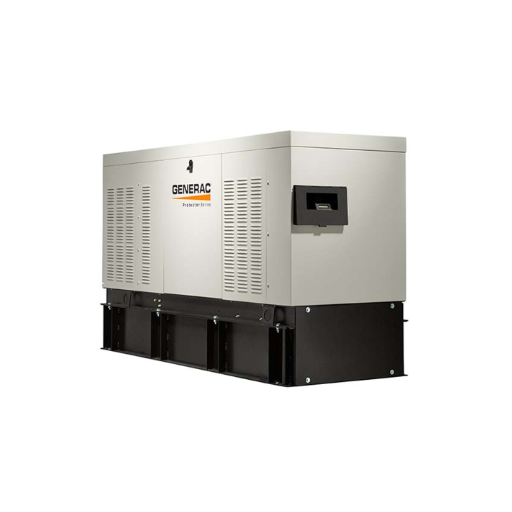
- Diesel Generators:
Diesel generators are best suited for high-output and high-reliability applications like construction sites, hospitals, and data centers. Due to their robustness and ability to handle heavy loads, they make excellent backup power sources during emergencies or in areas experiencing frequent power outages.
- Natural Gas Generators:
Natural gas generators are more suitable wherever emission reduction is prioritized, such as residential areas, schools, and business establishments in urban regions. Moreover, they are excellent options for continuous power generation facilities with a steady supply of natural gas, such as industries and some remote operations with pipeline access.
When to Choose a Diesel Generator
Diesel generators are well-suited for situations where powerful, long-term, abnormal electricity generation is needed. They are best suited for industries, construction sites, hospitals, and other operational sites where after-hours and backup are essential. According to some recent industry data, the generator market is over 70% composed of diesel generators, as these generators can provide stable output for enormous power needs and continue working for a prolonged period.
Diesel generators are fuel-efficient. A diesel engine generally uses 30–50 percent less fuel than a mixture of gasoline generators. Therefore, diesel generators are cost-effective over time. Besides these advantages, modern diesel generators have low particulate emissions and meet strict emission standards, thus mitigating pollution hazards.
Durability and long life are almost always considered defining qualities while determining the categories of applications into which diesel generators fit. They run well under all types of unusual weather conditions, making them ideal for places where the weather is abnormal and more natural disasters occur. For instance, they are widely employed as the primary backup power source in heavy hurricane countries. Studies reveal that these generators can run under full load for 24–48 hours with good maintenance numbers, enhancing their emergency credentials.
Otherwise, diesel generators prove a great value if there is no available pipeline, possibly leading to natural gas or grid power, such as mining sites, off-grid construction projects, or rural communities. Being portable and easy to fuel makes them much more versatile and one of the prime choices for the more demanding applications.
When to Choose a Natural Gas Generator
Natural gas generators are typically the best choice wherever an uninterrupted and clean fuel supply is available on demand. These generators are more suitable for an urban or suburban setup where one can tap directly from natural gas pipelines, so the fuel is uninterrupted. Unlike diesel generators, these generators release fewer pollutant emissions, thus being friendly to those homes and businesses that urge sustainability. Further, unlike Diesel generators, loud noise generation is not familiar with natural gas generators, so that is another advantage they have in residential or noise-sensitive projects.
Natural gas generators are preferred on account of their effective and efficient long-term operation-side applications, whereby standby power is required for hospitals, data centers, or other extensive commercial facilities without the concern of being constantly refueled. However, in places prone to natural disasters that would eventually disable pipeline infrastructure, contingency measures need to be in place to handle any interruptions in supply. In any case, natural gas generators are an excellent option as long as reliability and operational efficiency are emphasized alongside environmental care.
Backup Power Solutions: Diesel vs. Natural Gas
Diesel generators and natural gas cogeneration backup power solutions are far apart regarding fuel efficiency, maintenance, emissions, cost, and reliability in the case of disasters.
| Parameter | Diesel | Natural Gas |
|---|---|---|
| Fuel Cost | Higher | Lower |
| Efficiency | More efficient | Less efficient |
| Emissions | Higher | Cleaner |
| Reliability | Independent | Utility-dependent |
| Maintenance | Lower | Higher |
| Setup Cost | Lower | Higher |
Pros and Cons of Diesel and Natural Gas Generators
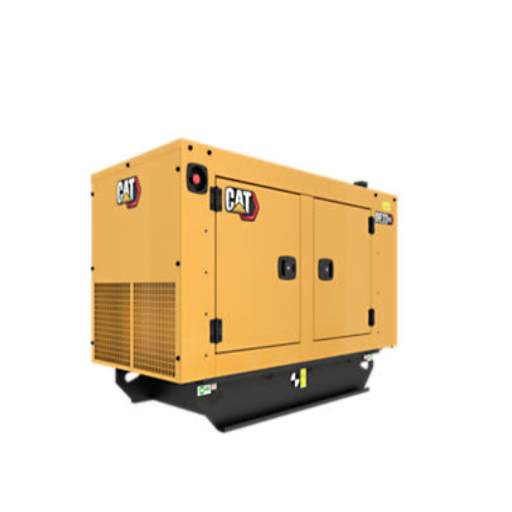
- Pros of Diesel Generators
Power Output: Delivering high power, the diesel generators suit heavy-duty jobs.
Durability: Diesel generators are heavy-duty, suited for long hours of operation without much wear.
Fuel Availability: Diesel fuel is a readily available commodity that can be stored during emergencies.
- Cons of Diesel Generators
Environmental Impact: Diesel generators pollute more than natural gas, with higher levels of carbon dioxide and particulates.
Noise Levels: During operation, they tend to make more noise.
Maintenance: A diesel engine needs regular maintenance, including oil and filter changes.
- Pros of Natural Gas Generators
Cleaner Energy: Natural gas combustion produces fewer emissions than diesel, so it is categorized as clean energy.
Affordability: Natural gas is usually less expensive than diesel in terms of long-term use.
Convenience: They can be connected to an existing gas pipeline, eliminating the need for on-site fuel storage.
- Cons of Natural Gas Generators
Supply Disruptions: They are reliant on pipeline infrastructure, which can be disrupted in emergencies like natural disasters.
Initial Cost: A natural gas generator and pipeline connection installation could initially be costlier.
Lower Power Output: In some applications, natural gas generators may not provide the needed power as an alternative to diesel generators.
Making the Right Choice for Your Needs
Fuel availability, operational cost, environmental effect, and power justifications must be considered when choosing between a diesel and natural gas generator. Diesel generators are most commonly preferred for their endurance, large power output, and efficiency under heavy loads. However, some businesses with higher emissions may require fuel storage. On the other hand, natural gas, being cleaner and quieter with the convenience of being directly attached to gas lines, could suit those in areas with robust natural gas infrastructure.
According to recent Google data, natural gas generators seem to be increasingly preferred in urban and suburban settings, primarily due to their smaller environmental footprint and ease of operation. For the rural and remotest landscapes, diesel generators have remained the best choice because of diesel’s dependability and the lack of gas line access. In conclusion, whatever you choose must correspond with your energy requirements, location, environmental concerns, and long-term costs.
Reference Sources
- Challenges of Phasing out Emergency Diesel Generators: The Case Study of Lacor Hospital’s Energy Community (Felice et al., 2023)
- Key Findings: This study investigates the economic feasibility of reducing and replacing emergency diesel generators with solar PV, battery energy storage, and demand-side management. The results show that entirely replacing the diesel generators with renewable energy can decrease the levelized cost of energy by 26% and reduce greenhouse gas emissions by 74%.
- Methodology: The study uses a mixed-integer quadratically constrained program to optimize the configuration and scheduling of the new assets to minimize the levelized cost of energy.
- Optimal Operation of a Microgrid by Planning Diesel Generators and Microturbines (Huynh et al., 2023, pp. 1–6)
- Key Findings: This paper proposes an improved artificial bee colony algorithm to optimize the location and capacity of diesel generators and microturbines in an islanded microgrid to minimize active and reactive power losses.
- Methodology: The authors develop an improved artificial bee colony algorithm and compare its performance to those of genetic algorithms and particle swarm optimization approaches.
- An Industry 4.0 implementation of a condition monitoring system and IoT-enabled predictive maintenance scheme for diesel generators (Mohapatra et al., 2023)
- Key Findings: This paper presents an Industry 4.0 implementation of a condition monitoring system and IoT-enabled predictive maintenance scheme for diesel generators to improve reliability and efficiency.
- Methodology: The authors developed a condition monitoring system and predictive maintenance scheme using IoT technologies and implemented them on diesel generators.
Frequently Asked Questions (FAQs)
What are the main differences between gas and diesel generators?
Gas and diesel generators differ primarily in their fuel type and efficiency. Diesel generators tend to have a higher energy density than natural gas generators, making them more suitable for heavy-duty applications. On the other hand, gas generators typically burn cleaner and may be more cost-effective for fuel consumption if natural gas lines are accessible.
What are the cons of diesel generators?
While diesel generators are known for their durability and efficiency, some cons include higher emissions than natural gas generators, potential noise issues, and the fact that diesel fuel is less flammable. Additionally, the initial cost of diesel units can be higher than gas generators.
How do I find the right generator for my needs?
To find the right generator for your needs, consider factors such as your applications’ power requirements, the availability of fuel types, and your budget. Based on your location and energy needs, assess whether you need a generator that operates on diesel or natural gas.
Are diesel generators more efficient than natural gas generators?
Diesel generators are more efficient than natural gas generators in fuel consumption and energy output. This efficiency is particularly evident in industrial settings, where peak energy density is crucial. However, the overall cost-effectiveness can vary based on local fuel prices and generator maintenance requirements.
What are the pros and cons of natural gas generators?
Natural gas generators are often favored for their cleaner emissions and lower operational costs. However, their disadvantages include reliance on access to natural gas lines, which can limit their use in remote areas. Additionally, they may not provide the same power output level in heavy-duty applications as diesel generators.
Which generator is right for heavy-duty applications?
A diesel generator is typically the right generator for heavy-duty applications due to its higher power output and durability. Diesel units are designed to handle larger loads and are ideal for industrial settings where critical power is required.
How do generators emit pollutants, and which is cleaner?
Generators emit pollutants depending on their fuel type. Gas generators typically produce fewer emissions compared to diesel generators, which are known to emit higher levels of nitrogen oxides and particulates. Therefore, a natural gas generator might be preferred if cleaner operation is a priority.
What factors should I consider when choosing between diesel and gas generators?
When choosing between diesel or gas generators, consider factors such as fuel availability, emissions, maintenance requirements, initial costs, and your application’s specific energy needs. To make an informed decision, it’s essential to evaluate the long-term operational costs and environmental impacts of each fuel type.
